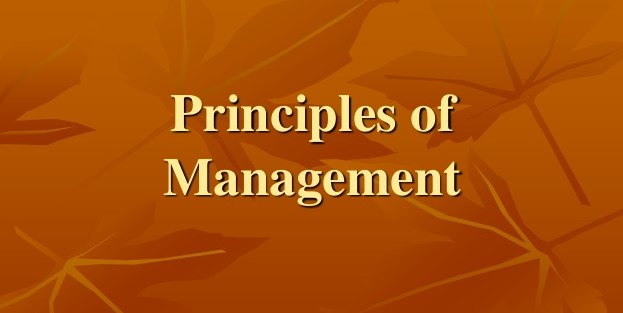- Teacher: Bhavana Aeruva
- Teacher: JAIMOLE CROSS
COURSE OBJECTIVE:
The Purpose of this course is to apply micro economic concepts and tools for analysing business problems and making accurate decisions pertaining to the business firms. The emphasis is given to tools and techniques of micro economics
SCOPE OF THE COURSE:
It covers basic Micro Economics concepts and practices for Managerial decision making. It also covers the basic and important topics of Demand and Supply. The scope also extends to include the theory of production and other cost concepts. Finally in the end the cost covers market structures and different types of pricing policies. The following are the major areas divided in to five units.

The course addresses the English language needs of the students at the undergraduate level even as it acknowledges their critical thinking skills. The text exposes the students to a range of contexts where the language is used to meet a variety of real life communication needs, to give and seek information, to express opinions, and to engage with practical, emotional, intellectual and creative aspects of language by integrating knowledge and skills. The book emphasizes on use rather than the usage, on how the English language is used rather than how it should be used. Each chapter is organized in such a way that it creates a lot of involvement and encouragement to the learner.
The syllabus has been designed to develop linguistic and communicative competence of undergraduate students.
In the classes the focus is on the skills of Reading, Writing, Listening and Speaking divided under the four categories of Prose, Poetry, Vocabulary and Grammar. The teacher also asks questions to stimulate classroom discussion and based on these discussions the students will be made to write short paragraphs /essays, participate in group discussions as part of continuous assessment.
- Teacher: CHRIS LENINA PETERS
- Teacher: Dr. MAITHRY SHINDE
COURSE CODE/ TYPE: DSC-101 HOURS PER WEEK: 5 THEORY
COURSE TITLE: PRINCIPLES OF MANAGEMENT CREDITS: 5
Instructor: Ms. Payal Pattnayak
OBJECTIVE:
The Course aims at providing the students, to gain understanding of the functions and responsibilities of managers. To provide them tools and techniques to be used in the performance of the managerial job. To enable them to analyze and understand the environment of the organization. To help the students to develop cognizance of the importance of management principles.
COURSE OUTCOMES:
Students will be able to
CO1: Discuss and communicate the management evolution and how it will affect future managers. Integrate management principles into management practices.
CO2: Identify and evaluate social responsibility and ethical issues involved in business situations and logically articulate own position on such issues.
CO3: Explain how organizations adapt to an uncertain environment and identify techniques managers use to influence and control the internal environment.
CO4: Practice the process of management's five functions: planning, organizing, staffing, directing and controlling.
CO5: Evaluate leadership styles to anticipate the consequences of each leadership style.
CO6: Gather and analyze both qualitative and quantitative information to isolate issues and formulate best control methods.
CO7: Assess global situation, including opportunities and threats that will impact management of an organization.
CO8: Specify how the managerial tasks of planning, organizing, and controlling can be executed in a variety of circumstances.
CO9: Determine the most effective action to take in specific situations.
CO10: Understand varies emerging issues in management such as Total Quality management, Technology Management, Talent and Knowledge Management, Leadership, Organizational change and Development, Corporate Social responsibility etc.
SCOPE OF THE COURSE
Unit I- Introduction to Management - Meaning, definition, concept, scope and principles of management; Evolution of management thought - Management theories- classical, behaviour, system, contingency and contemporary perspectives on management. Management art or science and management as profession. Process and levels of Management. Introduction to Functions (POSDCORB) of Management.
Unit II - Planning – Importance, objectives, process, policies and procedures, types of planning, Decision making - Process of decision making, Types of decision, Problems involved in decision making.
Unit III: Organizing – Meaning, importance, principles of organizing, span of management, Patterns of organization – formal and informal organizations, Common organizational structures; departmentalization, Authority- delegation, centralization and decentralization, Responsibility – line and staff relationship;
Unit IV: Staffing - Sources of recruitment, Selection process, Training, Directing, Controlling – Meaning and importance, Function, span of control, Process and types of Control, Motivation, Co-ordination – Need and types and techniques of co-ordination - Distinction between coordination and co-operation - Requisites for excellent co-ordination - Systems Approaches and co-ordination.
Unit V: Emerging issues in Management – Total Quality management, Technology Management, Talent and Knowledge Management, Leadership, Organizational change and Development, Corporate Social responsibility
Working in a group of two, students have to solve a case study based on Functions of Management.
GUIDELINES ON CLASS PARTICIPATION:
The class is based on discussions, activities and examples. Students are expected to throw away their inhibitions and be participative in class. Every time an assignment is given, students need to come prepared with the work. Students are also expected to be well read about the world of business and marketing as it will help them immensely in class discussions.
ASSESSMENT SCHEDULE:
There will be
· Two internals will be held. Each internal will be of 15 marks each for 30 minutes duration.
Section A: Multiple choice questions (10 questions of ½ marks each.)
Section B: Fill in the blanks (10 questions of ½ marks each.)
Section C: Short answers (5 questions of 1 mark each.)
·
One
end semester exam – conducted by OU
BOOKS:
1. Robbins, S. P., & DeCenzo, A. D. Fundamentals of Management. New Delhi: Pearson Education.
2. Harold Koontz & Heinj Weihrich, (2015) Essentials of Management, 10th Edition, Tata McGraw-Hill Education, New Delhi.
3. T.Ramasamy, (2015) Principles of Management, Himalaya Publishing House, Mumbai.
4. L.M. Prasad, Principle and Practice of Management, Sultan Chand and Sons, 6 th edition.
5. Gupta, Sharma and Bhalla; Principles of Business Management; Kalyani Publications; 1st edition.
6. P.C. Tripathi & P.N. Reddy, (2015) Principles of Management, 5th Edition, Tata McGraw-Hill Education, New Delhi.
TEACHING METHODOLOGY:
· Lecture – chalk and talk method
· Discussion – group discussion/brain storming
· PowerPoint presentation

- Teacher: Dr PAYAL PATTNAYAK
